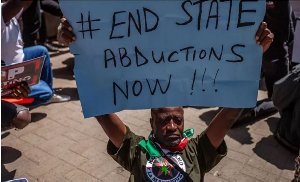Ethiopia became Africa's latest defaulter after failing to make interest payments after the end of a grace period on Monday.
The Horn of Africa nation was due to pay a $33 million coupon on Dec. 11, Ethiopia's Finance Minister Ahmed Shide said. The government did not want to pay because it wanted “to treat all creditors equally.” State TV on Thursday.
Finance Ministry senior reforms adviser Hinjat Shamil confirmed on Monday that the payment has not been made and will not be made. Ethiopia last month reached an agreement with bilateral creditors to suspend debt payments.
The default places Ethiopia among a growing number of developing countries that have defaulted on Eurobonds in recent years, including Zambia, Ghana and Sri Lanka.
In its counterproposal for restructuring, the government asked bondholders to extend the amortization maturity period from July 2028 to January 2032 and reduce the coupon to 5.5% from the current 6.625%. However, the face value will remain at $1 billion, meaning creditors will not be required to take so-called cuts on their holdings.
Earlier this month, an ad hoc committee of bondholders said it considered the decision not to pay “both unnecessary and unfortunate.”
Ethiopia wants to renegotiate its obligations through the Group of 20's Common Framework, which has begun to gain momentum after Zambia and Ghana made progress in restructuring their debts. This allows debt relief from public and private lenders to be coordinated to set debt treatment standards.
The country has reached an in-principle agreement with bilateral creditors to suspend debt payments, seeking to rework its liabilities beyond 2021 as the civil war in the northern Tigray region sours investor sentiment. and slowed down economic growth.
Business News of Tuesday, 26 December 2023
Source: bloomberg.com

















